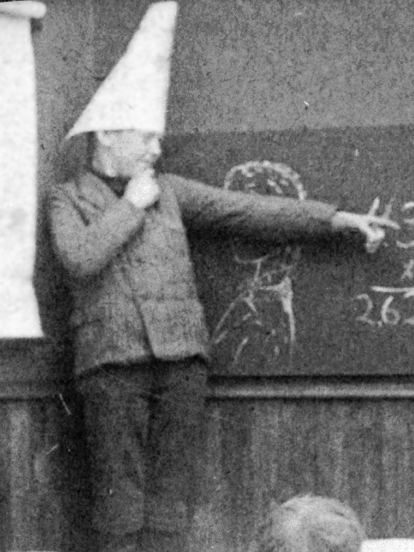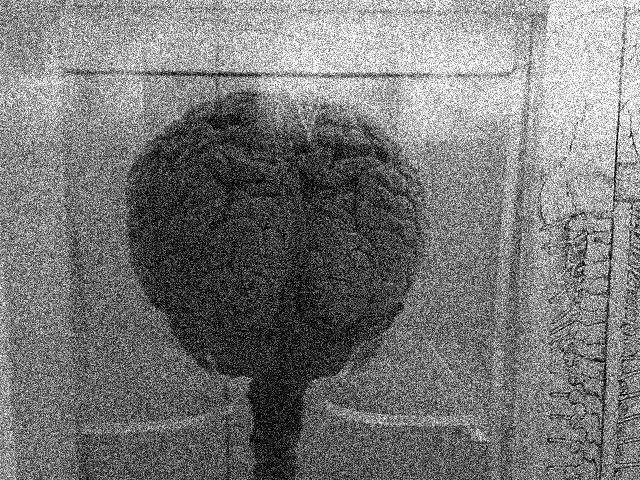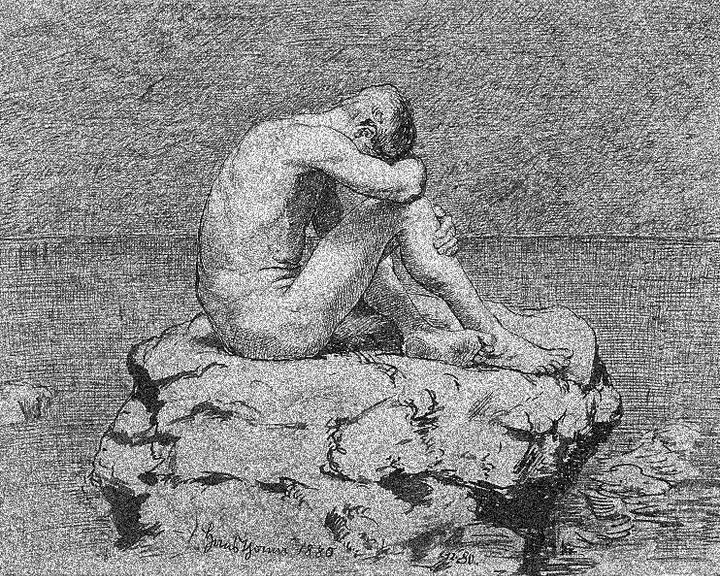Idiocracy, but Sadder
We are more educated and informed than any previous generation, but we’re still becoming more idiotic.

It is a common enough complaint that education levels are falling, public standards declining, and our intellectual diet of Netflix, Disney+, and Amazon Prime Video—with occasional sides of HBO—is making us stupider. In the political sphere, the past decade has been characterized by moral panics that voters, and in particular “low information” working-class ones, are increasingly susceptible to the charms of the charismatic populist or the appealing lies of fake news. At the same time, a gerontocratic political class faces increasingly regular charges of senility, in addition to usual questions around probity, competence, and intellectual capacity.
In short, there is a general cultural feeling that the intellectual standards of Western societies are in freefall, and the Epsilon-minus Semi-Morons, not the Alphas, of Aldous Huxley’s Brave New World are in charge. Mike Judge’s 2006 film Idiocracy presents us with a future we are worried will be ours: in the year 2505, society has been fundamentally altered as a result of lower birth rates among the most intelligent members of society, such that a hibernated dumb guy from our age who reawakens in the future suddenly becomes the smartest guy on the whole planet. The film misses the mark in a few ways, but its essential message applies a bit too directly. If we live in a pre-idiocratic age, it’s not by much.
If idiocracy lies ahead, we might do better looking backwards rather than forward for answers. The Ancient Greeks understood clearly the challenges of distinguishing the true from the false. Plato argues for a correct way to organize society with three categories: philosopher-kings, warriors, and craftsmen. This matches a perfect formula for societal harmony, knowledge of which can only be gained through philosophical reflection. In this account, only philosophers—those who can access the world of thought—can know beauty or justice. The rest of us can never really know, though we might fool ourselves that we do.
Unlike many modern analysts who still purport to believe in some version of meritocracy while dismissing the capacity for reasoning in their fellow citizens, Plato was not afraid to draw out the consequence of this premise. If only a select few, the philosophers, would ever really be able to recognize the true and the beautiful, then only a small number of people should be allowed any real form of power—not to mention their improved mating rights to avoid an idiocratic takeover. The non-philosophers meanwhile are relegated to life as warriors or craftsmen, as they are only capable of recognizing objects approximating beauty or truth rather than grasping the concepts. Those fools are best off doing something other than thinking or engaging in politics.
For the Greeks, though, the idiot was a slightly different character to this cognitively impaired fool. As Matthew Crawford points out in his excellent The Case for Working with Your Hands, the idiot is not merely the stupid person but the private person. In other words, idiocy, as opposed to foolishness, is a social or ethical failing as well as a cognitive one. Even the word in English reveals the Greek origin: idios in Greek means private, and the idiosyncratic approach remains the one that is, in one sense, personal and private to the person who does it. Crawford’s focus is on how work has been increasingly dematerialized and made private (that is, shut off from dialogue with others and a clear public role for many office workers’ labor), but it is possible to make a more general point here. We are not idiots today because we are stupid. Indeed, we are better educated and informed than any previous generation. We are idiots, rather, because we are more and more private.
The more they are examined, however, the more the roots of this generalized privacy seem to lie in not the private but in the public sphere. The enforced privacy of the Covid era—the lockdowns, “social distancing”, and mass working from home of the parts of society least likely to see themselves as idiots—accelerated rather than created deeper social and political trends. Long before Covid, sociologists had analyzed and understood the processes of individualization of late modernity, while political scientists had likewise observed in declining rates of political participation the rusting of the underlying machines of politics. Marx and Engels long ago identified the narrowness of “the idiocy of rural life.” At the same time the ways to break out of our personal and private lives offered to us has been more and more replaced by a pseudo-public sphere that substitutes private idiocies for truly shared concerns. In the 2005 British TV series Nathan Barley, misanthropic journalist Dan Ashcroft calls out the modern obsession with being networked and validated through having the correct opinions and consumption choices—a preference for being seen to be cool rather than principled (unless principled is in this season).
Ashcroft notes a fool-to-idiot progression as idiots rise to power: “once the idiots were just the fools gawping in through the windows. But now they’ve entered the building.” When those setting the agenda care more about the “optics” than the issues, we have idiots in charge. We increasingly look like the sort of networked but privatized individuals that appear more engaged in public life, but in truth, we have retreated more and more into the private.
It is precisely this idiocy as privatization rather than idiocy as cognitive limitation that explains, for instance, the recent collapse of Liz Truss’s political project. Although Truss’s failure was one of such epic proportion as to be worthy of Greek tragedy, it was most commonly explained by her irrational or stupid economic policy. Her deeper failure, though, is explained by her detachment and her lack of sense of how her private knowledge related (or, in this case, not related) to a wider, majoritarian political programme. She did not seek to reach beyond her small, private coterie of ideological post-Thatcherites to the wider public sphere. Contrast Truss’s lonely idiocy with Boris Johnson’s more social foolishness, evident in his inability to adhere to his own lockdown rules—a clear example of a failure to grasp the concept of law that makes him a Platonic fool and unfit for the philosopher-king rank.
We arrive, then, at the paradoxical condition of modern idiocy: the almost fully private individuals who see themselves as highly connected—in Nathan Barley’s terms, as a “self-facilitating media node.” Unsurprisingly, then, diagnoses of generalized narcissism, such as that offered by Christopher Lasch, ring true. As Emmet Penney points out in a perceptive analysis of Lasch, the really tragic aspect of our narcissism is not our self-love but our lack of self-recognition. Narcissus falls in love with his reflection only after he fails to recognize it as an image of himself. Psychologists believe babies under 12 months cannot recognize their reflection but simply smile at the baby-in-the-mirror. Boris Johnson wakes up in the morning and sees Boris Johnson in the mirror.
This puts us in a considerably worse position than the Ancient Greeks. The Greek politician Pericles famously defended democracy and the Athenian way of life in his funeral oration for casualties of the Peloponnesian War. Pericles also condemned the ethics of being an exclusively private individual. Those listening to the speech or reading Thucydides’s relaying of it would have found to have great moral force.
In his speech Pericles asserts that the Athenians alone “regard a man who takes no interest in public affairs, not as a harmless, but as a useless character.” The sad truth is that this rings hollow today, as we all agree that while it’s true, it probably applies to someone else.
■
Anthony Bernard works in education and social research; he writes on issues in political theory.
George Hoare is a host of the global politics podcast, Bungacast, and co-author of The End of the End of History (Zero Books, 2021).



